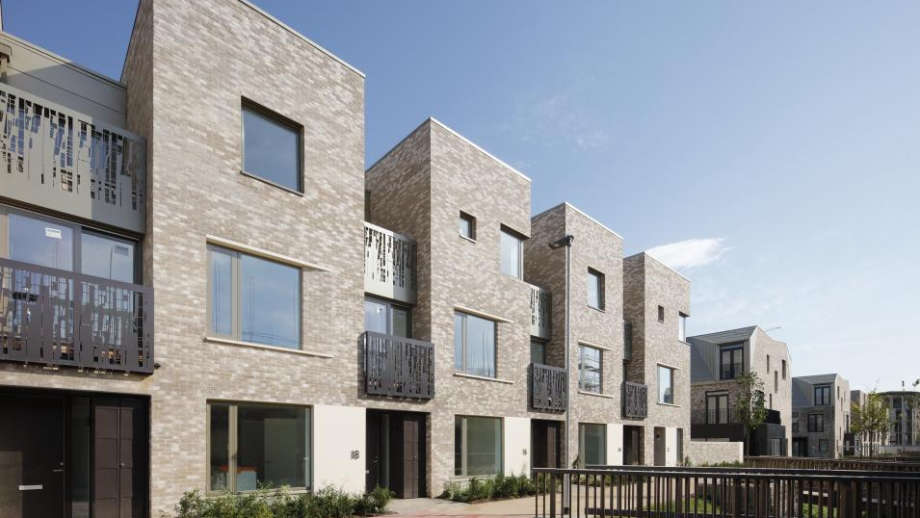
As global warming and the climate crisis become increasingly pressing concerns, their impact on housing infrastructure and urban design is significant, particularly in Nigeria.
In a recent interview, architectural design and sustainability expert Ebi Bozimo explored the challenges and potential solutions for building resilience against extreme weather conditions.
Impact of Extreme Weather on Nigerian Housing and Urban Design
Architect Bozimo emphasised the undeniable changes in Nigeria's environment, with soaring temperatures and frequent flooding becoming more common. These changes profoundly affect the comfort and functionality of living spaces. According to him, historically, Nigerian architecture was closely aligned with local climatic conditions: in the southern regions for instance, stilt houses promoted airflow over, around and underneath buildings.
Bozimo suggested revisiting these traditional designs and integrating them with modern materials to address current climate challenges. He highlighted the importance of shading in modern glass-heavy designs and criticised the prevalent use of asphalt and concrete in urban spaces, which create heat islands and exacerbate flooding.
“The way we design our urban spaces now, there often does not seem to be enough green area or shade trees. Everybody tends to put either asphalt all the way down or interlocking stones and you have heat islands. The sun blazes down, hits the ground, reflects back up people at the buildings, making these urban hot houses. That's why you tend to find when you go out of the city, the air seems to be cooler and fresher because you don't have so much hard surface. That hard surface also has its effect on flooding because naturally, when rain would tend to fall, it could fall on earth, and percolate underneath the ground,” he explained.
The Necessity of Changing Building Practices
When asked if current building practices need to change, Bozimo affirmed that while contemporary needs drive current designs, it is crucial to incorporate "time-honoured principles." He advocated for building orientation and window placement that enhance natural ventilation, reducing reliance on artificial cooling. This approach is particularly relevant in a world increasingly focused on energy efficiency and sustainability.
Roofing Materials and Cooling
Bozimo called for the use of more sustainable building materials as he critiqued the common use of dark-coloured roofing materials, which absorb and retain heat, making buildings uncomfortable. He recommended lighter-coloured roofing materials that reflect sunlight and suggested ventilating roof spaces to prevent heat build-up. He also pointed out the potential for insulation and solar-powered ventilation systems to enhance comfort and reduce energy consumption.
"A very contemporary look is what people call the ‘rain come down’ with a very steep roof, often in dark colours. Unfortunately, these dark materials absorb all the sun's energy and release it in the evening when people are back home. This creates a negative cycle where upper floors become uncomfortable unless air conditioners are used. We should use light-coloured roof materials to reflect more sunlight, shade our windows to avoid direct sunlight, and ventilate roof spaces," he noted.
Government Role and Public Awareness
Discussing the recent heat waves in 2024 and the role of government in addressing extreme weather conditions in the country, Bozimo acknowledged the importance of government advisories but stressed the need for more comprehensive measures. He called for green building policies and regulations to guide sustainable construction practices. For existing buildings, he suggested retrofitting measures to improve energy and water efficiency, emphasising the long-term cost savings and environmental benefits.
Bozimo also explained that while some building owners are proactive in adopting sustainable practices, broader implementation requires government incentives and public awareness. He mentioned that power-saving measures, such as energy-efficient bulbs, could significantly extend the capacity of Nigeria's limited power supply.
"You'll find a few building owners are very aware of steps they can take to minimise their cost of owning the building. They invest a lot in the design stage to ensure that down the line they are sitting pretty. But these measures would be more widespread if the government introduced policies and incentives. Even the 4,000 megawatts we boast about in Nigeria for over 200 million people could go further with better management and power-saving bulbs," he said.
Flood Resilience
Addressing flood resilience, Bozimo stressed the importance of accurate land surveying to identify flood-prone areas and recommended raising building foundations above predicted water levels. He emphasised the need for proper urban planning, including effective drainage systems and designated flood detention areas. Public behaviour, such as proper waste disposal, also plays a crucial role in preventing blocked drainage systems and subsequent flooding.
"There should be predictability. We must engage our land surveyors to identify datum points, the levels that water may or may not reach. This way, we can identify buildings at risk and take preventative measures. Proper urban planning ensures roads and gutters effectively manage water flow during heavy rains," he added.
Conclusion
Architect and sustainability expert Bozimo called for better planning, design, and behaviour to mitigate the effects of climate change. He stressed that both authorities and individuals have roles to play in enhancing Nigeria's resilience to extreme weather. Proper waste disposal, designated waste collection points, and sustainable building practices are essential steps toward a more resilient future.
Recall that President Bola Tinubu recently established the Presidential Committee on Climate Action and Green Economic Solutions to oversee Nigeria's green economic initiatives. According to a statement released on May 19, the Director of Information and Public Relations for the office of the Secretary to the Government of the Federation, Segun Imohiosen, said this 25-person committee aims to remove constraints to coordination, foster a whole-of-government approach to climate action programs, provide an efficient governance structure, and ensure all relevant institutions align with the President’s vision.
It is expected that the policies and incentives introduced through the input of this committee will significantly contribute to the government's efforts in building resilience against extreme weather conditions, especially as it affects Nigeria’s housing and urban design. This may include adopting recommended measures as part of Nigeria’s climate action plan, similar to the India Cooling Action Plan.


